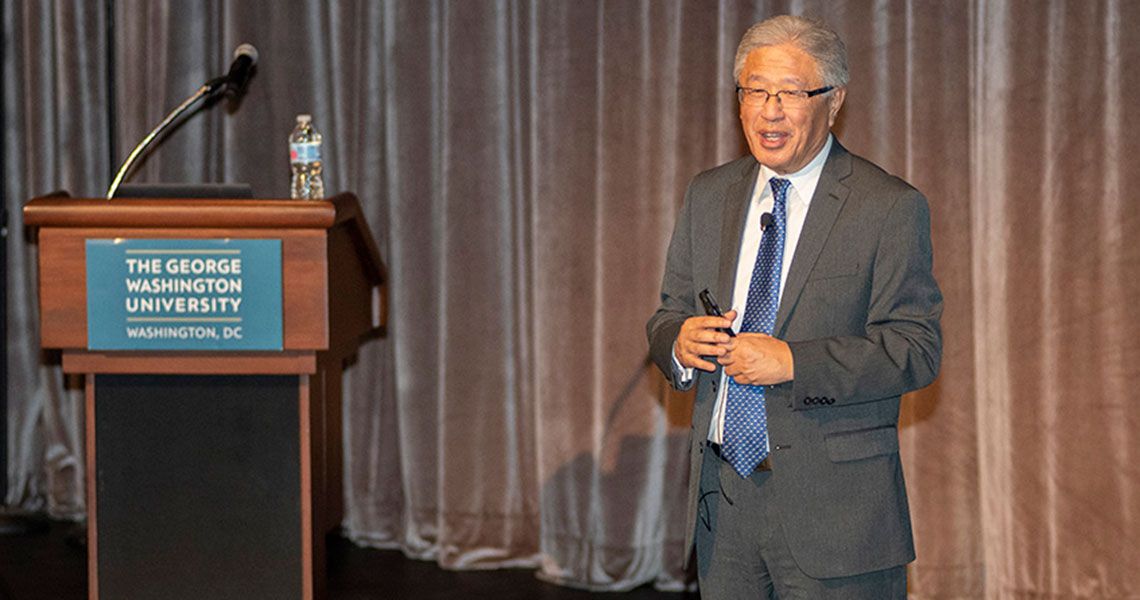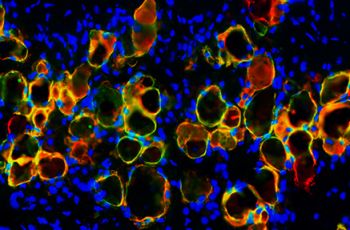Breakthroughs and major advances in health care, thanks to new technologies, will continue to provide ways to transform the industry and better help patients, said Victor J. Dzau, MD, president of the National Academy of Medicine (formerly the Institute Of Medicine), however, with those developments will come challenges such as rising costs, the security of health data, and ethical implications.
Organized by the Center of Health Policy and Media Engagement, Dzau’s lecture was part of the George Washington University (GW) School of Nursing’s health policy leadership lecture series, co-sponsored by the GW School of Medicine and Health Sciences and the Milken Institute School of Public Health at GW.
The lecture came not long after a Chinese researcher announced during a meeting in Hong Kong that he had created the world’s first genetically edited infants. Dzau was attending the summit on gene editing, and what happened there was reflected in his talk.
“We now have the technology to do this, but the question is when, and have we met all the issues [that are] necessary to look at implications,” Dzau said. “Whether it’s multi-generational implications, ethical implications, safety implications, and maybe others.”
He said while transformation of the health care space can be very good for patients, doctors, and researchers always have to keep the consequences of such advances in mind.
One example of a technological advance, he said, is the increase of data collection. This is already happening, through mobile devices, wearables, blood pressure monitors, and more, he noted.
“Imagine that you have a mobile platform that can help monitor patients remotely, but also a virtual avatar that could use [artificial intelligence (AI)] to manage patients, and diagnoses being made by AI, particularly in radiology and pathology. All this is an indication of where we are. This could greatly the change the way patients are being cared for.”
But, with all these changes, the industry must think about a few things, he said, including whether it will cause cost of care for patients to rise, whether it will increase health disparities, who owns the data and how privacy can be ensured, and the ethical implications of it all.
To tackle all of this, he added, industry will need to bring science, medicine, engineering, and data sciences all together, as well as engage social scientists, ethicists, and lawyers to think it through.
The National Academy of Medicine will be the one to play an important role in showing leadership in this area, he said. That will include committees to tackle this issue in a more proactive, prospective way, looking at governance and regulations, as well as cost effectiveness.
He concluded telling those in the audience that researchers, doctors, nurses, and other health professionals need to be aware of the actions they take and their impact on society.



